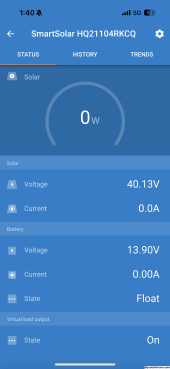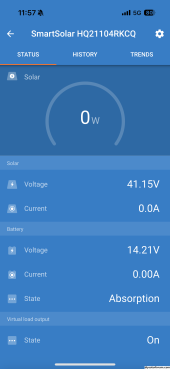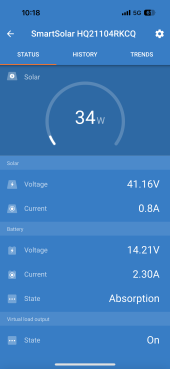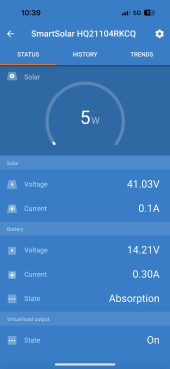poppunkboy
New Member
I've had an EPEVER Tracer 6415-AN charge controller for a couple years and experienced some various "glitches" (see video). I thought some charging issues were going on with the charge controller recently, so I bought a new one (same 6415-AN model). Things worked fine for a few days until today, when I got an over-voltage warning (see video). This is the same issue that happened a year ago.
Am I doing something wrong regarding sizing my system? I live in Los Angeles and have two 320 W panels in parallel, each one operating at 37.42 VMP (volts) and 8.65 IMP (amps). (see pic below). My math is 640 W (solar panels) divided by 12 V (system, battery) = 53.3 Amps. Add 25% of that (=13.3) for compensation and you get 66 Amps for solar charge controller. I feel like returning the EPEVER & getting a Victron 150 V / 70 Amp controller if I'm somehow under-sizing my controller... or a 250 V size? Ridiculously overkill, right?
The load connected to my 2000 W inverter was a small fridge running & a laptop charging. There was a spark upon connecting the solar panel positive wire to the solar charge controller's terminal, by the way.
Solar panel label -->
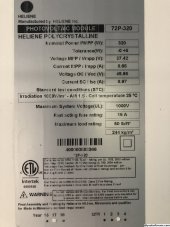 (solar panel label).
(solar panel label).
Am I doing something wrong regarding sizing my system? I live in Los Angeles and have two 320 W panels in parallel, each one operating at 37.42 VMP (volts) and 8.65 IMP (amps). (see pic below). My math is 640 W (solar panels) divided by 12 V (system, battery) = 53.3 Amps. Add 25% of that (=13.3) for compensation and you get 66 Amps for solar charge controller. I feel like returning the EPEVER & getting a Victron 150 V / 70 Amp controller if I'm somehow under-sizing my controller... or a 250 V size? Ridiculously overkill, right?
The load connected to my 2000 W inverter was a small fridge running & a laptop charging. There was a spark upon connecting the solar panel positive wire to the solar charge controller's terminal, by the way.
Solar panel label -->
 (solar panel label).
(solar panel label).



